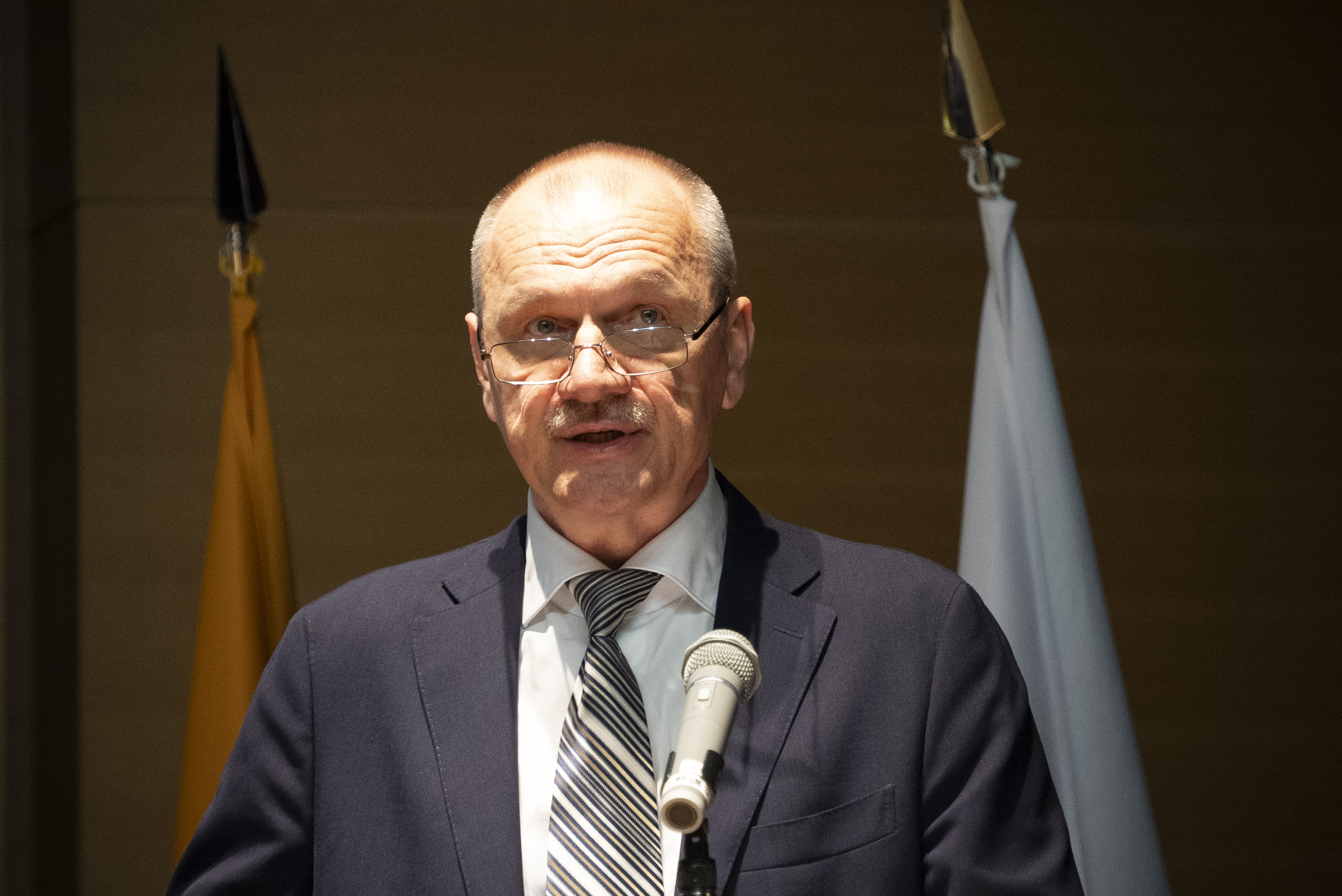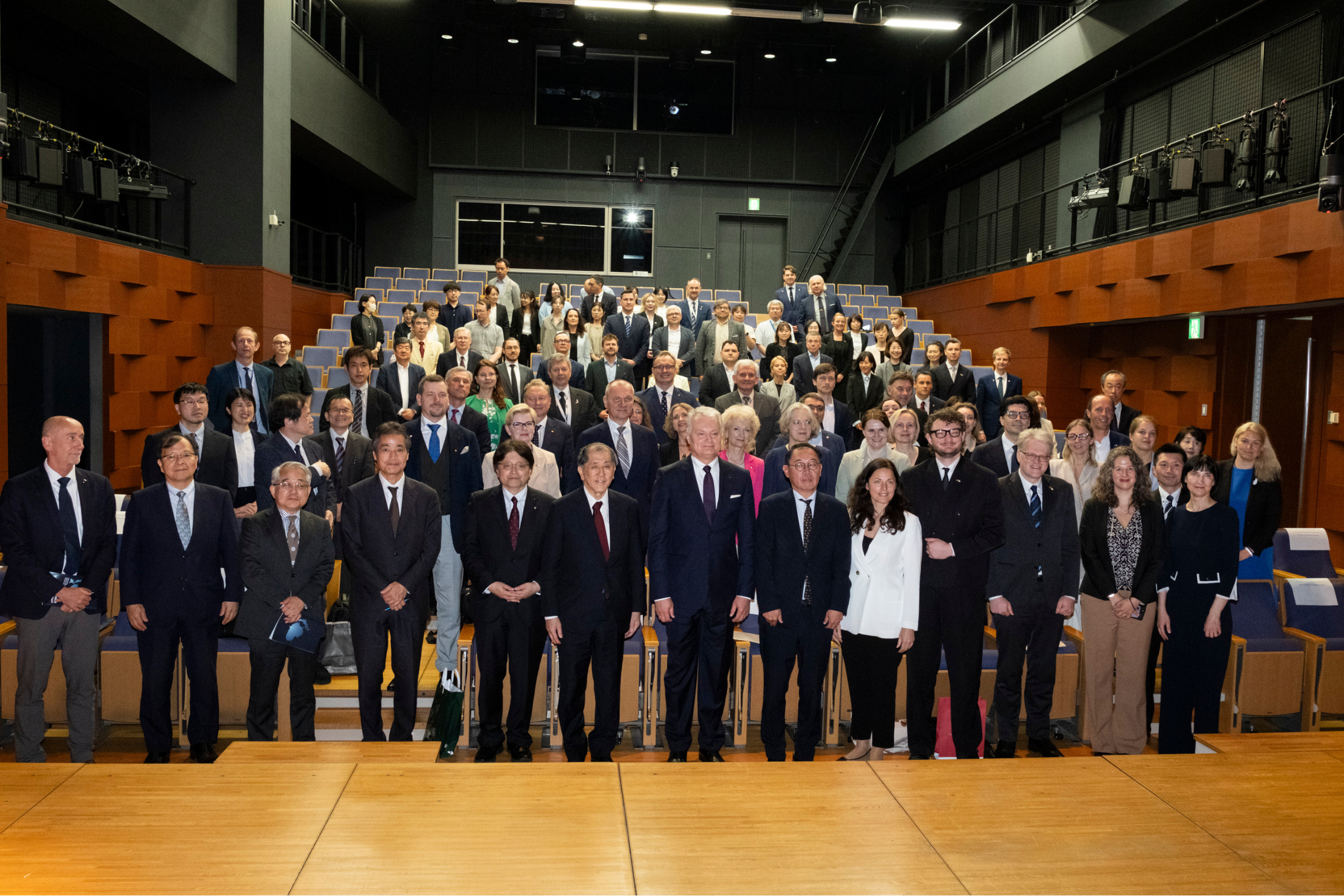On June 10, 2025, the first Lithuania–Japan Science Forum titled Innovation in Life Sciences, Biotechnology, and Advanced Technologies took place at Waseda University in Tokyo. The event brought together more than 100 researchers, policymakers, and industry representatives from both countries. It marked a significant milestone in a decade of scientific collaboration between Lithuania and Japan.
Vilnius University – specifically the Life Sciences Center (LSC) – was represented by its director, Dr. Arvydas Lubys. He delivered a presentation on the development of Lithuania’s life sciences sector, the economic significance of modern biotechnology, which celebrates its 50th anniversary this year, and the potential for international collaboration. His talk highlighted the rapidly growing startup ecosystem, the sector’s considerable contribution to GDP, and the government’s ambition to increase this contribution to 5% by 2030.
Dr. Lubys also introduced LSC as an advanced research infrastructure center hosting the European Molecular Biology Laboratory (EMBL) Partnership Institute. Presenting LSC’s work, he emphasized key scientific achievements that have earned international recognition and reflect Lithuania’s capacity to shape new directions in science and technology. Among these were Professor Virginijus Šikšnys, a pioneer in the CRISPR/Cas9 gene editing technology who laid the foundations for the development of so-called “gene scissors,” and Dr. Linas Mažutis, who develops microfluidic technologies at LSC for cellular and molecular analysis and co-founded two innovative companies – Platelet BioGenesis and Droplet Genomics – which successfully operate in the global biotech market.
The forum was also attended by the President of the Republic of Lithuania, Gitanas Nausėda, who emphasized the shared commitment of both countries to strengthening partnerships in science, high technology, and innovation. In his speech, he thanked Waseda University, the Research Council of Lithuania (LMT), and the Japan Society for the Promotion of Science (JSPS) for organizing the forum and contributing to bilateral cooperation.
The forum not only reaffirmed a decade-long collaboration between RCL and JSPS but also opened up new opportunities: in 2025, three new joint Lithuania–Japan projects will receive funding, and a reciprocal event is planned in Lithuania in 2026. In addition, postdoctoral exchange programs and developing partnerships with Japanese researchers are on the agenda.
 |
 |
| Photo of RCL |
